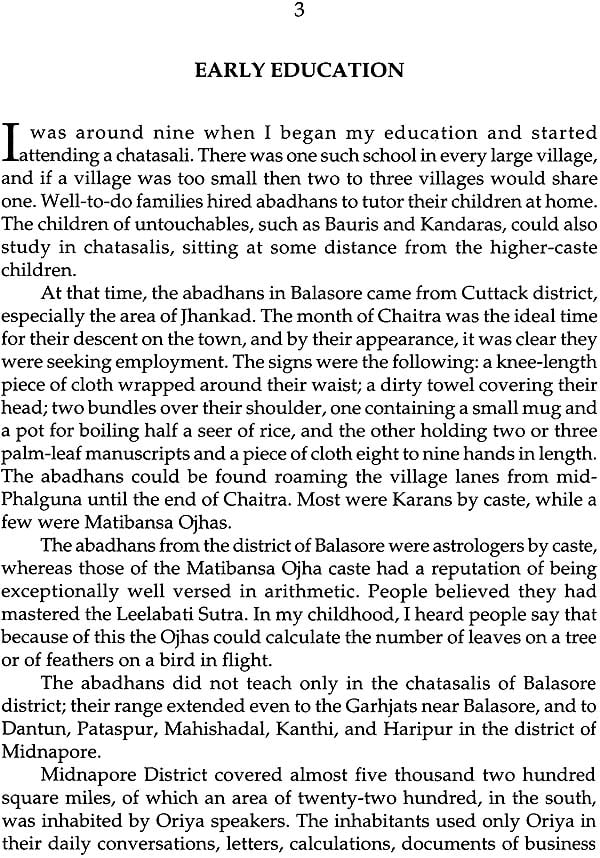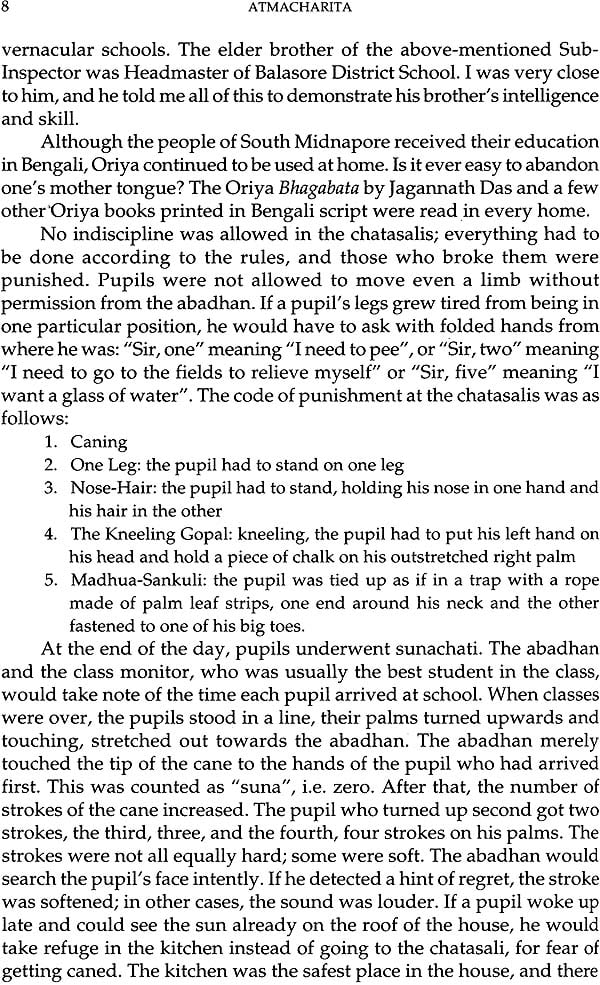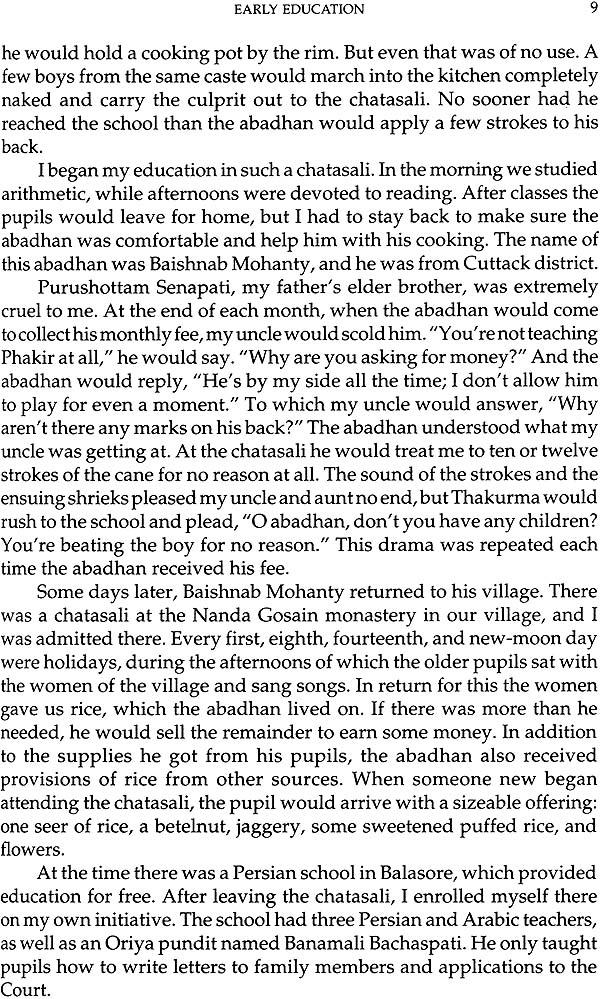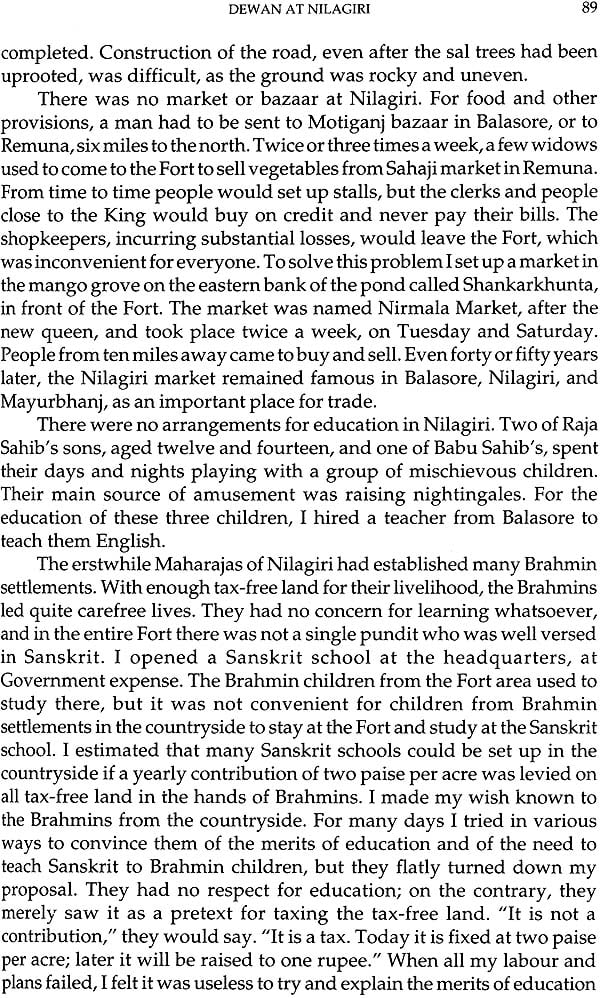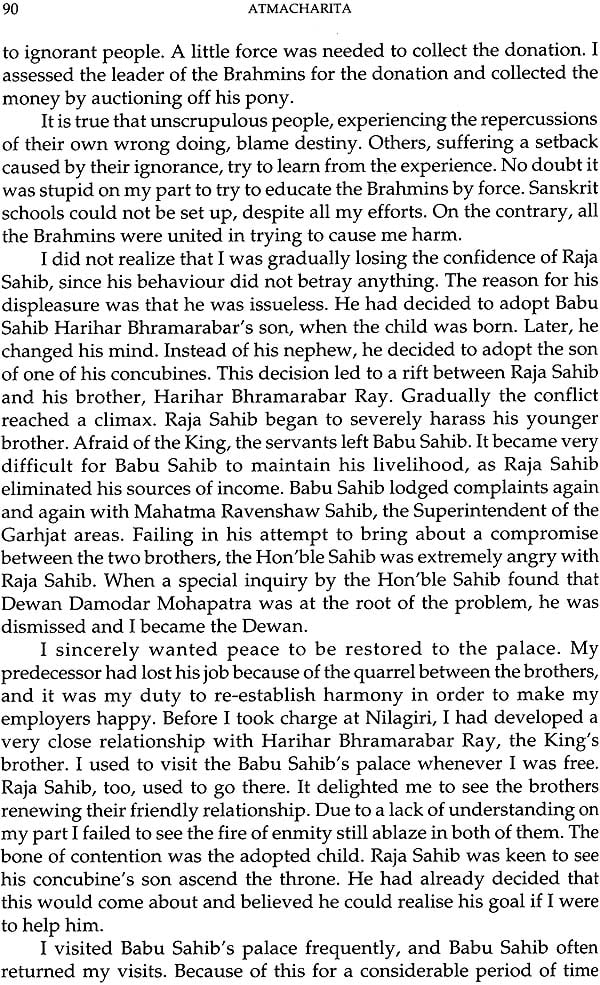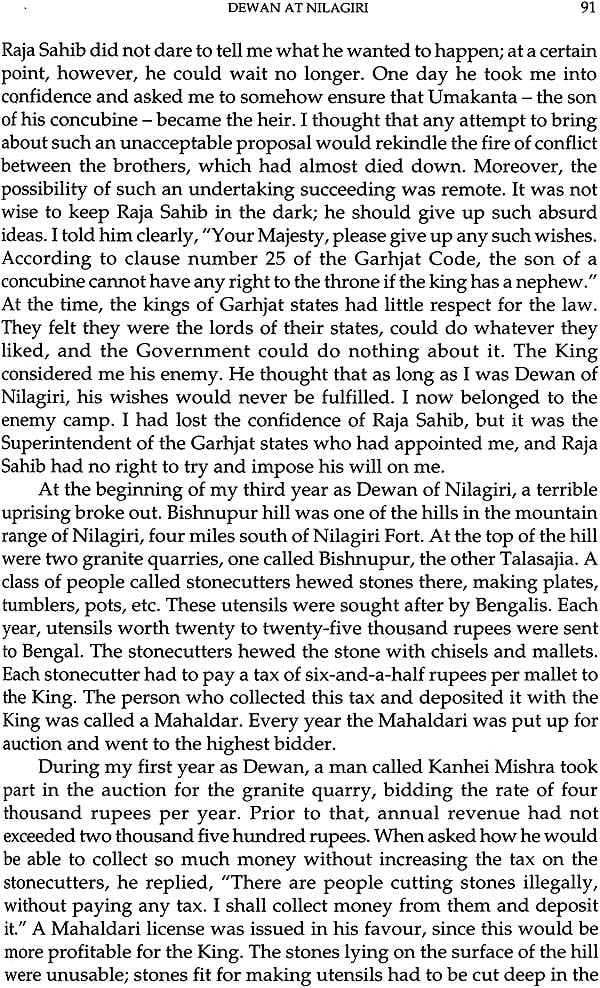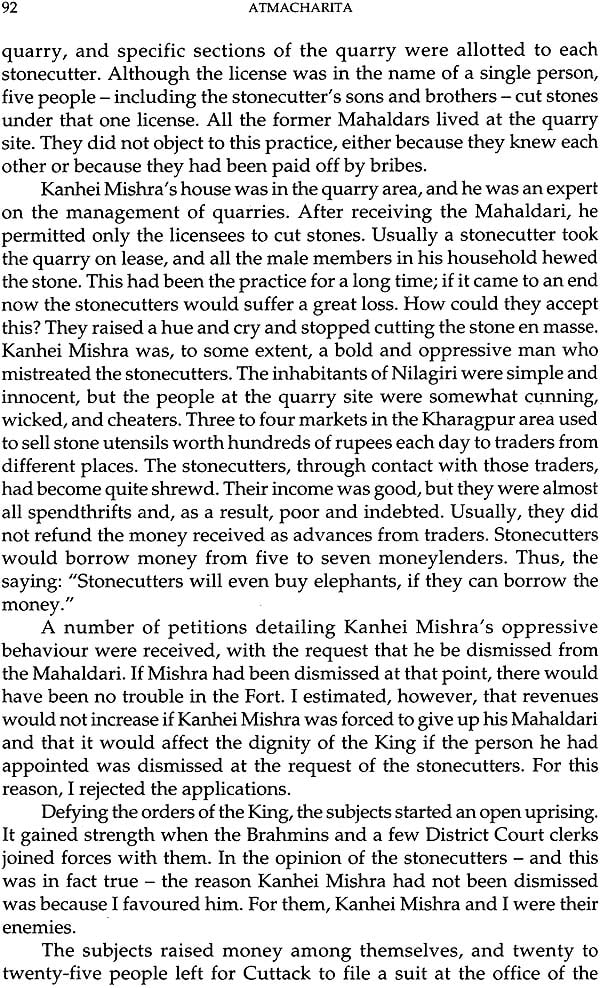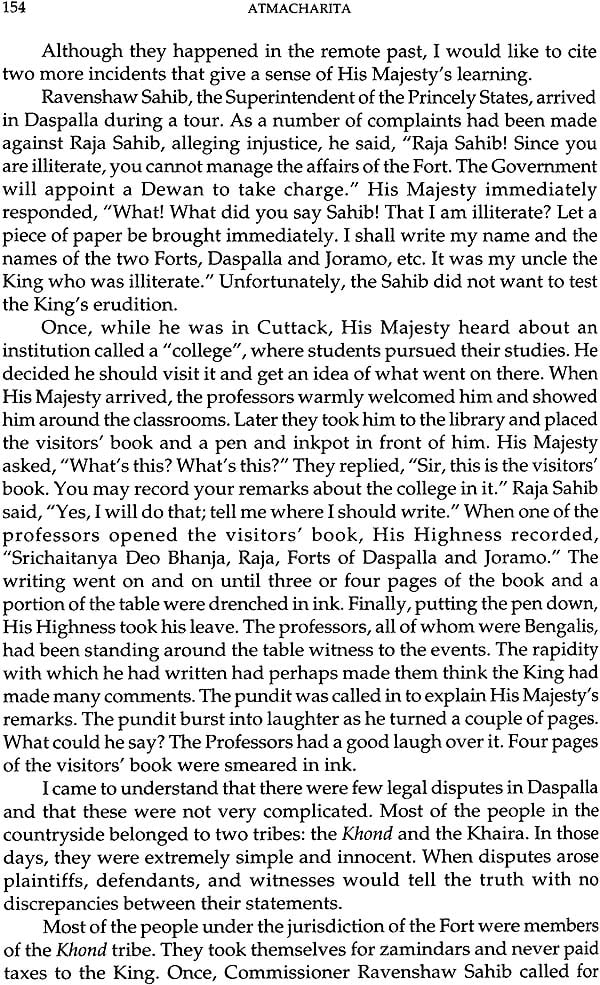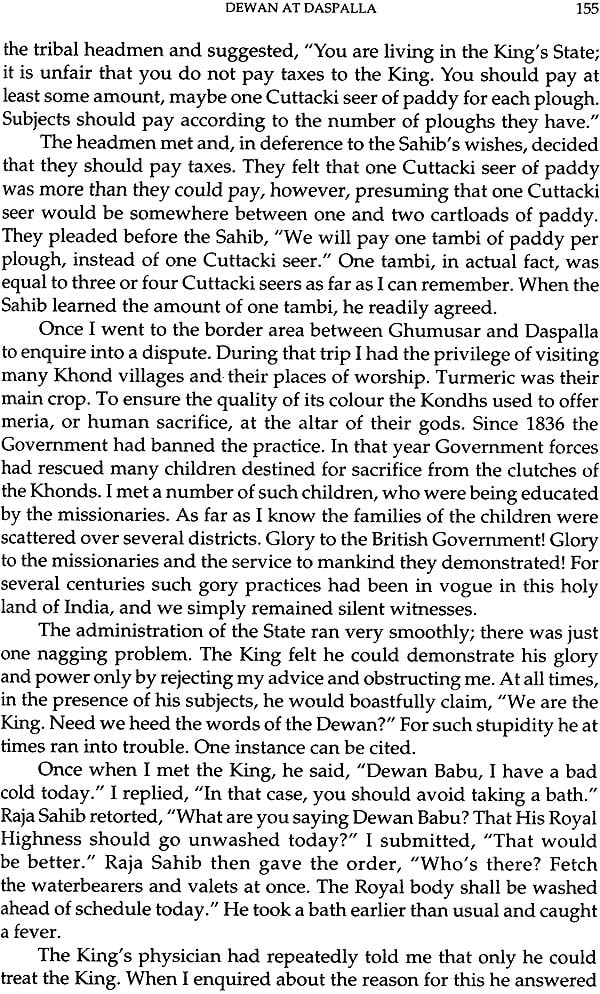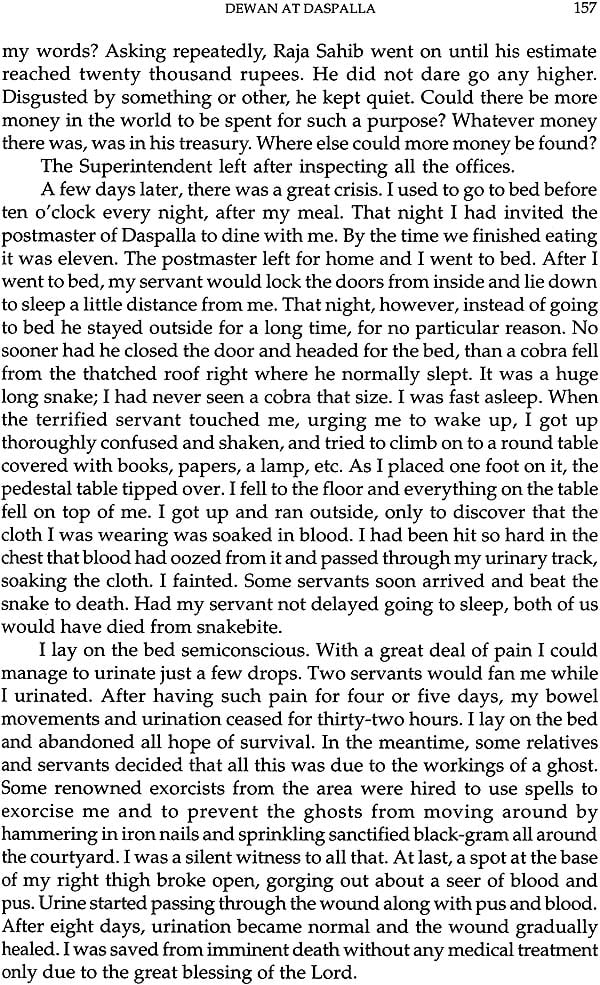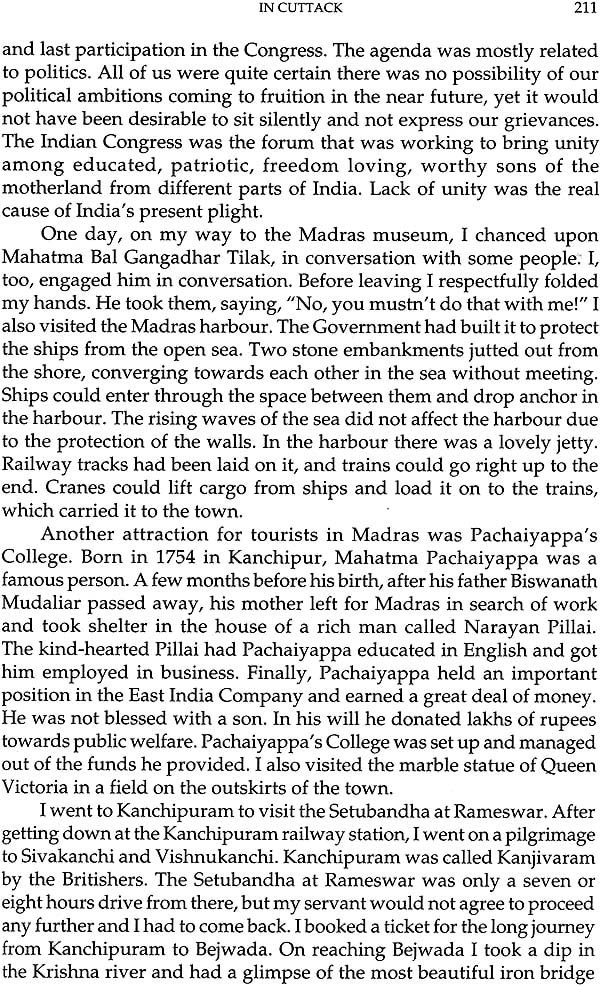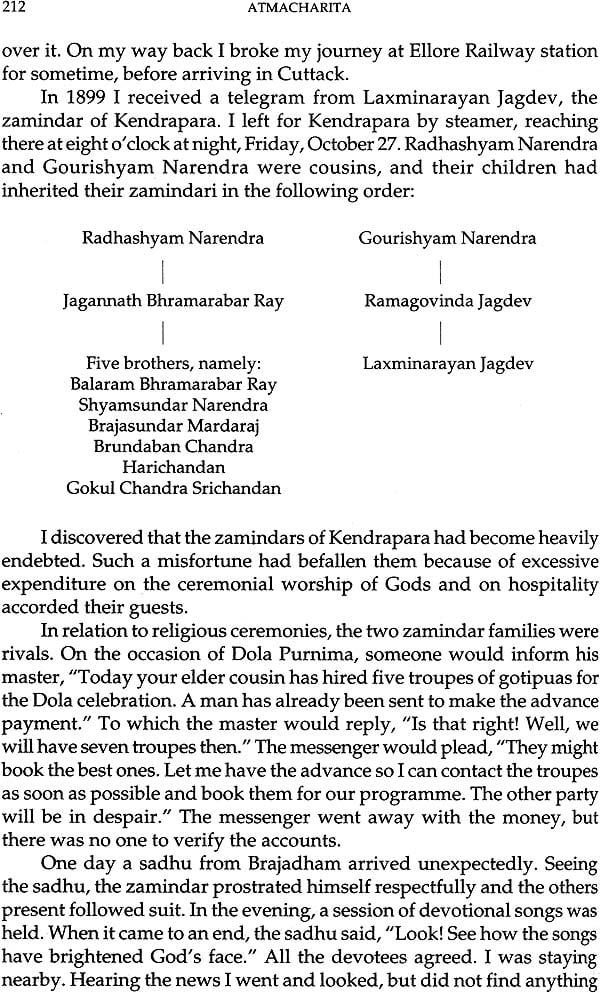
Atmacharita (Phakirmohan Senapati)
Book Specification
| Item Code: | NAN027 |
| Author: | Debendra Kumar Dash |
| Publisher: | National Book Trust, India |
| Language: | English |
| Edition: | 2016 |
| ISBN: | 9788123778389 |
| Pages: | 299 (4 B/W Illustrations) |
| Cover: | Paperback |
| Other Details | 9.5 inch x 6.0 inch |
| Weight | 600 gm |
Book Description
Phakirmohan Senapati's Atmacharita is arguably the first autobiography in Odia language. Regarded not only as the best autobiography in the Odia language even today, it also takes a pride of place among the most notable autobiographies of Indian literature. Atmacharita is not merely an account of Phakirmohan's life it is, more significantly, the linguistic representation of contemporary history and social life. Objective self-analysis, consciousness of life around it, historical insight, social enquiry, and above all, a novel-like imaginative, narrative and rehetorical style characterize it. The English translation of this new and fectual edition is likely to appeal to the wide range of writers, intellectuals, researchers, and general reader alike.
Phakirmohan Senapati (1843-1918) was born at Mallikashpur in Balasore, Odisha and played a pioneering role in establishing the distinct identity of Odia, a language mainly spoken in Odisha, India. Regarded as the Father of Modern Odia Literature, he dedicated his life to the progress of the Odia language in the late 19th and early 20th centuries. Coming from a very poor family, he had little formal education, but through his rare grit and determination, he educated himself and learnt several languages, including English. A pioneer printer, publisher and journalist in Odisha, he translated single-handedly both the Ramayana, and the Mahabharata from the original into Modern Odia, besides translating a number of Sanskrit classical texts. Much senior to the celebrated Nobel laureate, Rabindranath Tagore (1861-1941), and pioneering Hindi novelist, Munshi Premchand (1880-1936), Phakirmohan was among the first to depart from the romantic idiom and write novels in the genre of social realism in modern Indian literature. He produced many significant novels, after trying his hand at short stories, ballads, hymns, narrative poems, rollicking satires, school text books and an epic on Buddha. Some of his major works include Chhamana Athaguntha (Six Acress and Eight Decimels), Lachhama, Mamu (Maternal Uncle), Prayaschitta (Expiation)etc. However, his seminal contribution to the genre of autobiography has earned him a unique and lasting place not only in Odia literature, but in Indian literature, per se.
Debendra Kumar Dash, the Editor of the Odia original edition, is a well known researcher and critic of Odia literature. He has earned a special identity for himself in the field of textual editing. He has shown his excellence in editing the complete works of some of the stalwarts of Odia literature, namely, Radhanath Ray, Madhusudan Das, Phakirmohar Senapati, Umesh Chandra Sarkar and Gopabandhu Das.
| Prologue | ||
| Introduction | ||
| 1 | The Family Tree | 1 |
| 2 | My Childhood | 4 |
| 3 | Early Education | 6 |
| 4 | Sewing the Sails | 11 |
| 5 | Apprenticeship in Government Service | 12 |
| 6 | Visiting the Court | 15 |
| 7 | Education at Barabati School | 17 |
| 8 | A New Job | 21 |
| 9 | Development of Barabati School | 24 |
| 10 | Teaching at Balasore Mission School | 29 |
| 11 | Desire to Learn English | 35 |
| 12 | Changes in Social Life | 40 |
| 13 | Acceptance of the Brahmo Religion | 44 |
| 14 | Setting up a Press in Balasore: First Attempt | 49 |
| 15 | Pundit at Cuttack Normal School | 55 |
| 16 | Famine in Orissa | 57 |
| 17 | Thakurma Passes Away | 62 |
| 18 | Setting up a Press in Balasore: Second Attempt | 64 |
| 19 | Setting up Village Schools | 70 |
| 20 | Setting up a Girls' Schools in Balasore | 72 |
| 21 | "Oriya Is Not a Separate Language" | 78 |
| 22 | General and Higher Education | 81 |
| 23 | Membership on the School Committee | 83 |
| 24 | My Second Marriage | 85 |
| 25 | Dewan at Nilagiri | 88 |
| 26 | My journey to Cuttack | 94 |
| 27 | Dewan at Dompara | 96 |
| 28 | Assistant Manager in Dhenkanal | 120 |
| 29 | Dewan at Daspalla | 142 |
| 30 | Dewan at Palalahada | 166 |
| 31 | Manager at Keonjhar | 170 |
| 32 | Uprising at Keonjhar | 175 |
| 33 | Leaving Keonjhar | 198 |
| 34 | Dewan at Dompara for a Second Term | 204 |
| 35 | In Cuttack | 210 |
| 36 | In Balasore | 216 |
| Appendix 1 | 219 | |
| Appendix 2 | 245 | |
| Bibliography | 249 |
